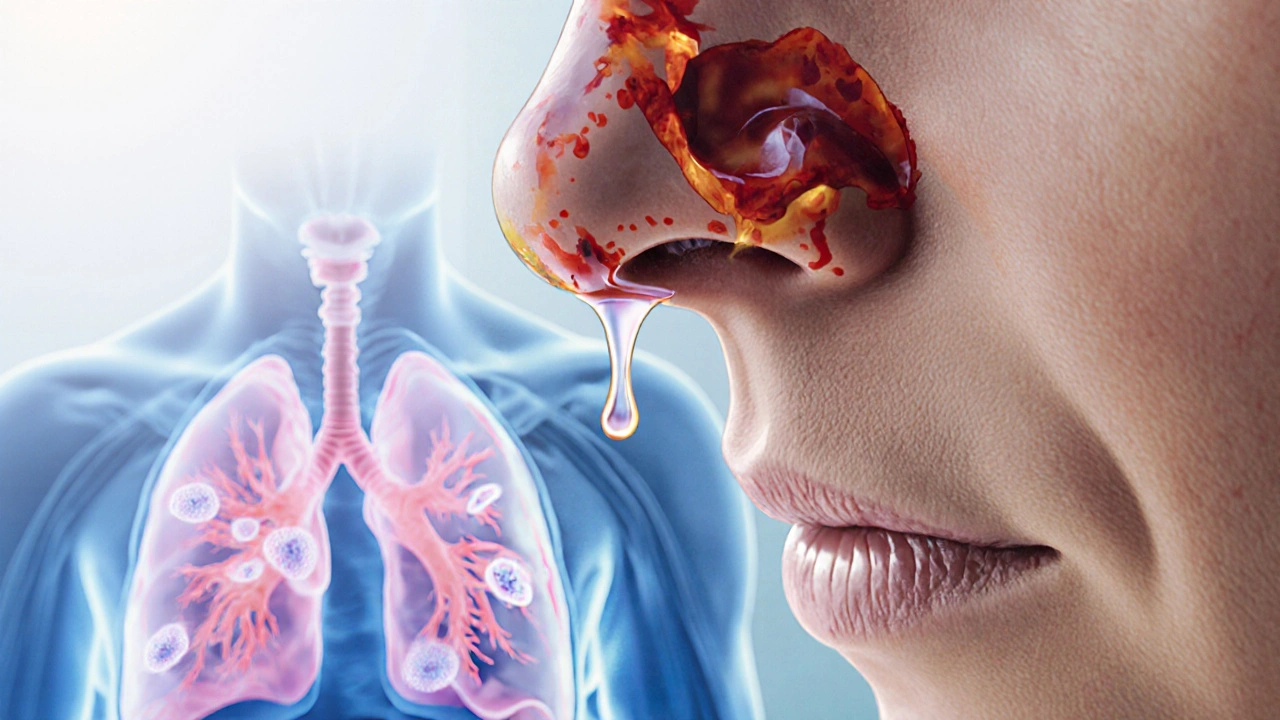When dealing with Respiratory infection, an infection that affects the airways, lungs, or sinuses. Also known as lung infection, it can be caused by various microbes and often leads to coughing, fever, and breathing difficulty. Understanding this condition helps you spot it early and choose the right care.
The most common triggers fall into two groups: Virus, a microscopic pathogen that invades respiratory cells and Bacteria, single‑cell organisms that can multiply in the lungs or throat. Viral agents like influenza or RSV often cause milder, self‑limiting illness, while bacterial culprits such as Streptococcus pneumoniae may lead to more severe pneumonia. Respiratory infection therefore requires accurate identification of the cause, because treatment pathways differ: antivirals target viruses, whereas antibiotics are reserved for bacterial strains.
Typical symptoms include a persistent cough, sore throat, nasal congestion, fever, and shortness of breath. When the infection reaches the lower airway, you might hear wheezing or develop chest pain. Doctors usually confirm the diagnosis with a physical exam, pulse‑ox reading, and sometimes a chest X‑ray or sputum culture. Early detection is key, especially for high‑risk groups like the elderly or those with chronic lung disease.
Treatment strategies revolve around three pillars: direct medication, supportive care, and prevention. For bacterial infections, Antibiotics, drugs that kill or inhibit bacterial growth are the primary choice, but they should only be used after a confirmed bacterial diagnosis to avoid resistance. Viral infections may benefit from specific Antivirals, medicines that interfere with viral replication like oseltamivir for flu, or they may resolve with rest, hydration, and over‑the‑counter remedies. In both cases, supportive measures—adequate fluid intake, humidified air, and fever reducers—speed recovery. Prevention plays an equally important role. Annual Vaccines, immunizations that prime the immune system against specific pathogens such as flu, COVID‑19, and pneumococcal disease drastically cut the risk of severe infection. Good hygiene, like frequent hand washing, covering coughs, and avoiding close contact with sick individuals, further reduces exposure. For smokers, quitting dramatically lowers the chance of chronic respiratory infections. By understanding the cause‑specific nature of a respiratory infection, recognizing warning signs, and applying the right mix of treatment and preventive steps, you can manage the illness effectively and keep complications at bay.
Below you’ll find a curated list of articles that dive deeper into specific medications, safety tips for buying drugs online, and related health topics. Use them to complement the overview you just read and to get practical guidance on managing your health.

Learn how sinus infections can lead to pneumonia, spot overlapping symptoms, and discover prevention and treatment tips to protect your respiratory health.